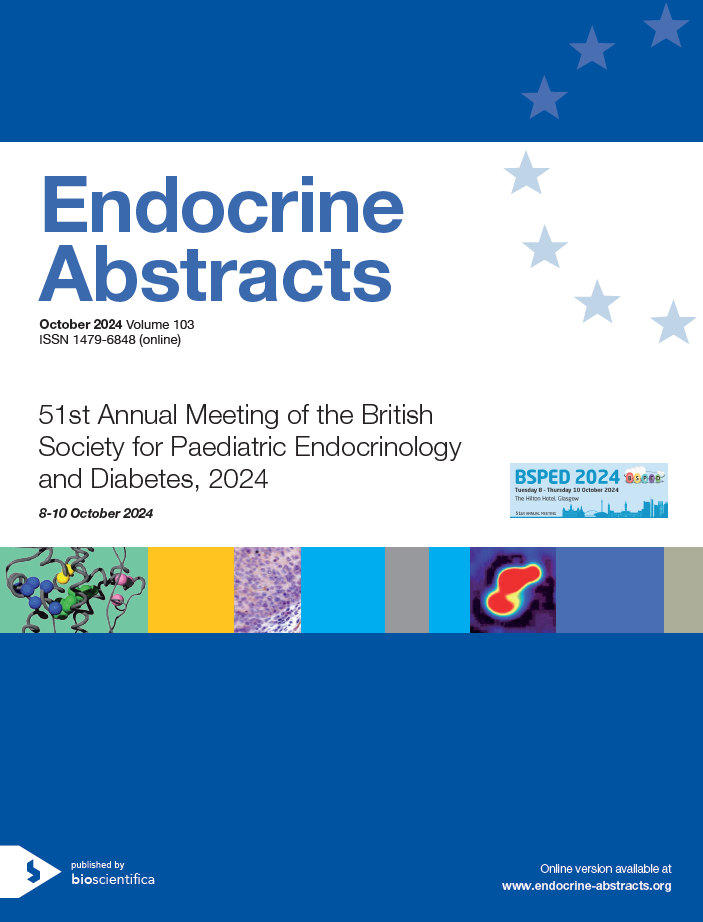
51st Annual Meeting of the British Society for Paediatric Endocrinology and Diabetes
Glasgow,
UK
08 Oct 2024 - 10 Oct 2024

Poster Presentations
Diabetes 1
ea0103p14 | Diabetes 1 | BSPED2024
Diabetic retinopathy screening in laotian children with diabetes: a collaboration between singapore national eye centre and action4diabetes
Ng Sze , Manivong Amphayvanh , Phommachack Daoheuang , Khambuapha Khamtavanh , Ooi6 Fiona , Foo Reuben , Tan Anna , Lek Ngee
ea0103p15 | Diabetes 1 | BSPED2024
Exploring perspectives of children and young people with type 1 diabetes in laos: moving beyond twice daily insulin to multiple daily regimens"
Ng Sze , Manivong Amphayvanh , Phommachack Daoheuang , Phimmasone Khounpaseuth , Khambuapha Khamtavanh , Nguyen Linh , Martin Tyla , Ooi Fiona
ea0103p16 | Diabetes 1 | BSPED2024
Diabetes outcomes and youth engagement: assessing transition readiness interventions in an NHS england transition pilot site
Pintus Donatella , Unsworth Lucy , Quinn Michelle , Kyprios Hannah , Finnigan Lynne , Day Helen , Rowe Lisa , Hubbard Rebecca , McCaffrey Liana , Farooqi Jamal , Murphy Charlotte , Padi Dennis , Bray Dominic , Saunders Simon , Ng Sze
ea0103p17 | Diabetes 1 | BSPED2024
The management of intentional insulin overdose in type 1 diabetes: a case presentation
ea0103p18 | Diabetes 1 | BSPED2024
Technology usage and glycaemic outcomes in an ethnically diverse and socioeconomically deprived cohort of children with type 1 diabetes mellitus
Dickinson India , Pemberton John , Uday Suma , Gupta Ankita , Lau Gar Mun. , Iyer Pranav Viswanath.
ea0103p19 | Diabetes 1 | BSPED2024
Age-related outcomes of hybrid closed-loop systems in children with type 1 diabetes
Pemberton John , Collins Louise , Drummond Lesley , Dias Renuka P. , Kershaw Melanie , Krone Ruth , Uday Suma
ea0103p20 | Diabetes 1 | BSPED2024
Increasing confidence in managing diabetes in the paediatric emergency department
O'Brien Rachael , Frerichs Carley
ea0103p21 | Diabetes 1 | BSPED2024
Real-world performance of the omnipod® 5 automated insulin delivery system in >6,600 children, adolescents, and young adults with type 1 diabetes in the united kingdom
M. Campbell Fiona , Ng Sze May. , Willemsen Ruben H. , Huyett Lauren M. , Hadjiyianni Irene , Mendez Jose J. , Conroy Lindsey R. , Ly Trang T.



